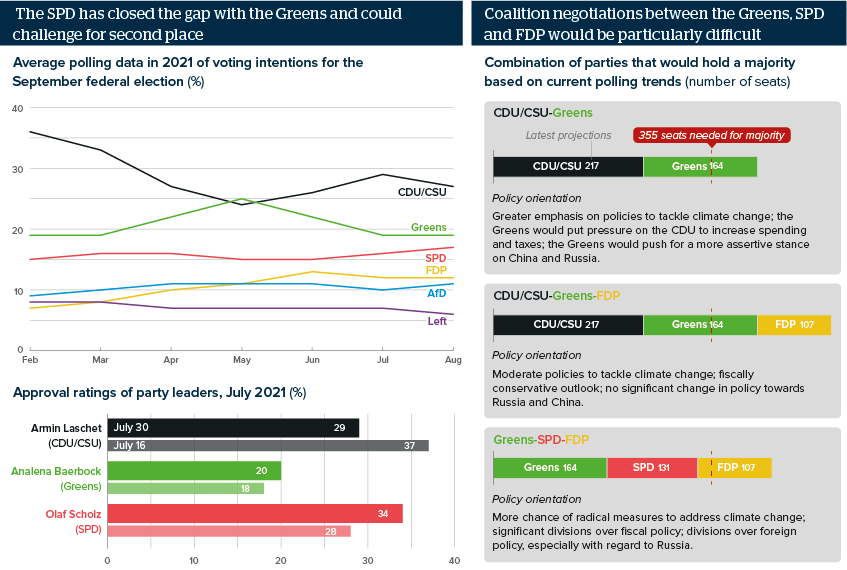German election race could be tighter than expected
The polls are tightening ahead of Germany’s federal election in September
Source: Forsa; Politico; Politbarometer
Outlook
A CDU-Greens coalition remains the most likely outcome, but the prospects for other coalition permutations have increased. The SPD has closed the gap and could perform better than expected if it manages to convert the relative popularity of its leader into party votes on election day. The Greens also have a chance to expand their support, with climate change now ranked as a top issue of voter concern following July’s devastating floods in western Germany.
More coalition possibilities could emerge if the polls continue to tighten. If three parties are required, government formation would take months and Germany’s policy direction would be more contested.
Impacts
- The CDU’s election programme is vague on climate change, which gives it leeway for negotiations with potential coalition partners.
- If the race tightens further, Russian and Turkish efforts to undercut support for the Greens could influence the result.
- Immigration is not currently a top priority for voters, suggesting the AfD will struggle to build on its 2017 result.
- The election result will have an important bearing on the outcome of talks to reform the EU’s fiscal rulebook.
See also
- Foreign influence could affect German elections - Aug 18, 2021
- German vaccine drive could give some momentum to AfD - Aug 12, 2021
- Euro-area outlook depends on continued fiscal support - Jul 30, 2021
- Germany after Merkel will become more China-sceptic - Jun 2, 2021
- Greens in German government would be pragmatic - May 6, 2021
- Germany's beleaguered CDU faces a crucial few months - Mar 23, 2021
- More graphic analysis
